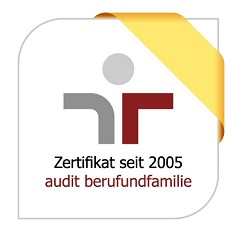Postdoctoral Researcher in Pediatric Glioma Research
Kennziffer: 2025-0124
- Heidelberg
- Full-time
- Pediatric Glioma Research

„Forschen für ein Leben ohne Krebs“ – das ist unsere Aufgabe am Deutschen Krebsforschungszentrum. Wir erforschen, wie Krebs entsteht, erfassen Krebsrisikofaktoren und suchen nach neuen Strategien, die verhindern, dass Menschen an Krebs erkranken. Wir entwickeln neue Methoden, mit denen Tumore präziser diagnostiziert und Krebspatient:innen erfolgreicher behandelt werden können. Jeder Beitrag zählt – ob in der Forschung, in der Administration oder der Infrastruktur. Das macht unsere tägliche Arbeit so bedeutungsvoll und spannend.
For the next possible date the Divisoin of Pediatric Glioma Research at the German Cancer Research Center is seeking a
Our research group is investigating the biological mechanisms and genetic alterations of pediatric brain tumors, in particular low- and high-grade gliomas. Our goal is to develop new, tumor-biology-tailored therapeutic approaches to improve treatment and reduce side effects. To this end, we use state-of-the-art genomic, epigenomic and functional technologies such as next-generation sequencing, CRISPR/Cas9 and tumor models. A particular focus is on translating our research results into clinical practice, including through our participation in the international INFORM and MNP2 molecular diagnostic studies.
Ihre Aufgaben:
We are seeking a highly motivated and qualified postdoc to join our team investigating the developmental origins and progression of pediatric low-grade glioma (pLGG). The selected candidate will play a critical role in planning and executing in vivo and in vitro (iPSC/organoid) experiments to elucidate the mechanisms by which pLGG-associated oncogenes drive glioma formation during specific developmental windows.
This is an exciting opportunity for a researcher looking to make a meaningful impact in the field of pediatric neuro-oncology by uncovering the developmental basis of glioma formation and identifying novel therapeutic targets.
- Develop and optimize murine models to introduce pLGG-relevant oncogenes and analyze the impact of these genetic alterations on brain development.
- Utilize single-cell RNA- and ATAC-sequencing approaches to map cell states and receptor-ligand interactions in glioma and normal brain tissue.
- Establish and maintain iPSC-derived brain organoid models in both standard 3D culture systems and microfluidic platforms that mimic neural tube development.
- Design and implement genetic perturbation assays
- Collaborate closely with computational biologists, clinicians, and other researchers to integrate findings into a comprehensive understanding of pLGG biology.
Ihr Profil:
- PhD in Developmental Biology, Neuroscience, Cancer Biology, or a related field.
- Hands-on experience with mouse models, organoid culture systems and drafting animal applications are highly desirable.
- Expertise in molecular biology techniques, histological analysis, and single-cell sequencing.
- Strong analytical and problem-solving skills with experience in high-throughput genetic perturbation approaches.
- Ability to work independently and collaboratively within an interdisciplinary research team.
- Excellent communication skills and a track record of scientific publications.
To apply, please submit your CV, a cover letter detailing relevant experience, and contact information for three references.
Unser Angebot:
- Hervorragende Rahmenbedingungen: modernste state-of-the-art Infrastruktur und Möglichkeit zum internationalen Austausch auf Spitzenniveau
- Vergütung nach TV-L inkl. betrieblicher Altersvorsorge und vermögenswirksamer Leistungen
- 30 Tage Urlaub
- Flexible Arbeitszeiten
- Möglichkeit zur Teilzeitarbeit
- Familienfreundliches Arbeitsumfeld
- Nachhaltig zur Arbeit: Vergünstigtes Deutschland-Jobticket
- Unser betriebliches Gesundheitsmanagement bietet ein ganzheitliches Angebot für Ihr Wohlbefinden
- Entfalten Sie Ihr volles Potenzial: Zugang zum DKFZ International Postdoc Program und dem DKFZ Career Service mit gezielten Angeboten für Ihre persönliche Entwicklung fördern Ihre Talente
Sie sind interessiert?
Dr. David Jones
Telefon: +49 (0)6221/42-4675
Bewerbungen per E-Mail können leider nicht angenommen werden.
Bitte beachten Sie auch, dass wir per Post eingereichte Bewerbungen nicht zurückschicken können.

